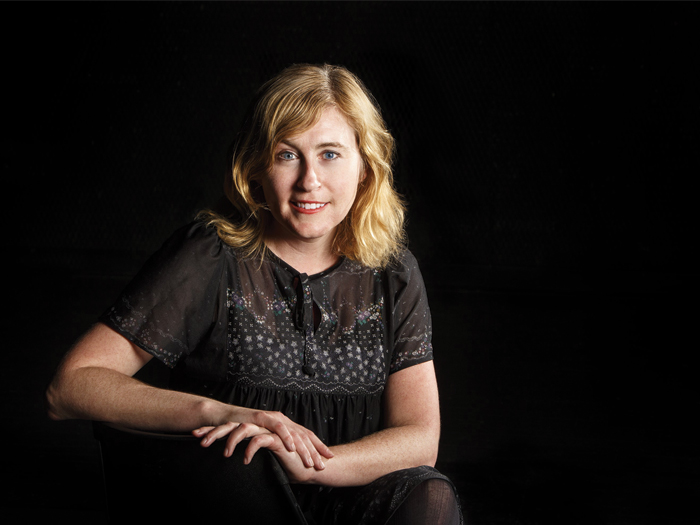
Dr. Kristen Gillespie-Lynch is coordinating a new advanced certificate program in Autism Spectrum Disorders at CSI.
The College of Staten Island will launch an Advanced Certificate Program in Autism in the Fall 2013 semester. This MA-level program, consisting of four three-credit courses, will focus on training professionals to work effectively with people who have an Autism Spectrum Disorder (ASD). The coursework and fieldwork opportunities will reflect a range of educational approaches and services available for persons with ASD.
There are a growing number of students on the autism spectrum. Educators and specialists who have received specialized training in autism will be better prepared to teach these students effectively. By taking a lifespan approach to ASD, the CSI Advanced Certificate Program in Autism will help educators and specialists teach students on the spectrum in a way that will build toward independence and social competence in adulthood.
The program was developed to provide additional education and training to post-baccalaureate students (with a bachelor’s or master’s degree) in order to enable them to work with individuals with ASD and their families at a heightened level of expertise. This program is also intended to provide continuing education and expertise in ASD for individuals who wish to meet continuing education requirements to maintain existing licensure or certifications.
The certificate program will consist of four graduate-level courses:
- Autism Spectrum Disorders: An Introduction to Contemporary Issues: Covers the history, etiology, symptomatology, theory, and treatment of ASD with a grounding in how these topics relate to typical development.
- Foundations of Treatment Approaches, Applications, and Methods for Individuals with Autism Spectrum Disorders (ASD) — Part 1: Covers classroom and other learning environments (e.g., family’s home, individual setting, leisure-time setting) structured to fit individuals’ needs.
- Foundations of Treatment Approaches, Applications, and Methods for Individuals with Autism Spectrum Disorders (ASD) — Part 2 (Advanced Topics): Covers advanced topics such as functional analysis, treatment generalization, self-management, rule-governed behavior, and contingency contracting.
- Speech, Language, and Communication: Covers the challenges in speech, language, and nonverbal communication that are typical for individuals with ASD, including social skills, planning skills, and related topics.
- Fieldwork (integrated into the four proposed courses). Each of the four courses includes a requirement of six hours of fieldwork at either a site of the student’s choosing or one assigned by the instructor. Available sites include several off-campus organizations and also the Center for Student Accessibility on the CSI campus.
Applications will be considered from teachers, speech pathologists, individuals in graduate-level psychology programs, or people from other fields who have already received their bachelor’s degree and who work with or want to work with people with ASD. If you are interested in applying to this program, please contact Dr. Kristen Gillespie-Lynch at kgillyn@gmail.com. Application materials include two letters of recommendation, a cover letter, and a current résumé. A minimum undergraduate GPA of 3.0 is recommended.
This program, the first of its kind at CSI, is unique because of its lifespan approach to autism spectrum disorders. Internship opportunities will range from working with young children with ASD, up to opportunities to mentor college students on the autism spectrum. One-third of the college students known to be on the autism spectrum at CUNY are at CSI. CSI is also home to a newly launched mentorship program for college students on the spectrum. This program is also accepting applications for fall mentors. If you are interested in becoming a mentor, please contact Dr. Kristen Gillespie-Lynch at kgillyn@gmail.com.
















